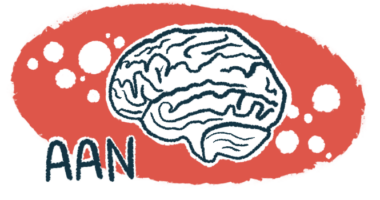London-based CERF Prizes Benefit U.S.-based Research

The Cullen Education and Research Fund (CERF), a private philanthropy based in London, has awarded more than $800,000 to support two U.S. research projects that are working to improve life for people with amyotrophic lateral sclerosis (ALS).
The CERF Medical Engineering Prize, worth €500,000 (about $570,000), was awarded to a group of scientists at Brown University, Harvard University, and Massachusetts General Hospital (MGH) who are creating so-called “soft robotics” to improve arm and hand function in people with ALS.
“The combined entry from the Brown and Harvard Universities and MGH [utilized] innovative fresh thinking, using highly advanced technologies,” David T. Cullen, chairman and founder of CERF, said in a press release. “We congratulate the team and would like to see them bring their innovations to the market place as soon as possible to greatly assist the day to day quality of life of people living with ALS and, indeed, patients of many other conditions.”
The system, already in development, is designed to be worn so it can sense subtle movements and translate them into full actions. For example, a device worn on the hands like a glove could register a twitch of the fingers, and then help close the hand so it can grab something.
The aim is to combine this soft robotics technology with tiny electrodes that sense and decode signals in the motor cortex – a brain region that controls voluntary movement – and then translate them into movement.
“Soft robotics can quietly, smoothly and unobtrusively provide for either rehabilitation or restorative function for people with ALS, stroke or spinal cord injury,” said Conor Walsh, PhD, a professor at Harvard.
“Brain-computer interfaces, including the system being developed by our [group], hold tremendous potential to restore communication and mobility for people with paralysis,” added Leigh Hochberg, MD, PhD, a professor at Brown.
Walsh and Hochberg are leading the research along with Sabrina Paganoni, MD, PhD, a physician-scientist at MGH.
“Seeing people with tetraplegia [paralysis of all four limbs] type on a computer screen or move a limb, simply by thinking about those movements, is remarkable. These are critical steps on the path to truly restored function for people with ALS,” Paganoni said. “We are grateful to all people living with paralysis who choose to participate in these ongoing clinical trials: it’s only through their generous efforts that we can discover and develop such revolutionary technologies.”
“Watching and listening to end users evaluate our soft robotic systems is incredibly inspiring,” Walsh said. “Their ideas and feedback continue to push the technology further and faster with an unyielding focus on developing portable systems that restore highest priority functions for people with tetraplegia.”
The second award, the CERF Medical Electronics Prize, was given to PathMaker Neurosystems. A $250,000 award (almost €220,000) will be shared between the company and the laboratory of its scientific founder, Zaghloul Ahmed, PhD, a professor at City University of New York and College of Staten Island, where the pioneering preclinical research was conducted.
PathMaker is working to develop technology that aims to reduce the activity of certain motor neurons. ALS is caused by the abnormal function and death of motor neurons, which are the nerve cells that control movement. Although some amount of electrical activity in these nerves is normal for movement, abnormally high electrical activity can cause damage to the nerves.
“Our hyperexcitability suppression technology enables the non-invasive suppression of overactive motor neurons — this is an approach that has not previously been applied to ALS,” Ahmed said, adding that the technology has shown “very promising results” in preclinical studies.
“We believe our non-pharmacological and non-invasive approach represents a potential new modality for addressing [ALS],” added Nader Yaghoubi, MD, PhD, PathMaker’s president and CEO.
Yaghoubi added that PathMaker is already working with scientists at MGH and Spaulding Rehabilitation Hospital to bring the technology into clinical application in ALS.
“We are very pleased to see the exciting potential for application of neuromodulation to ALS,” said Hazel Cullen, CERF Prize manager. “We hope that this support can facilitate efforts to move PathMaker’s promising technology into clinical application in ALS.”







